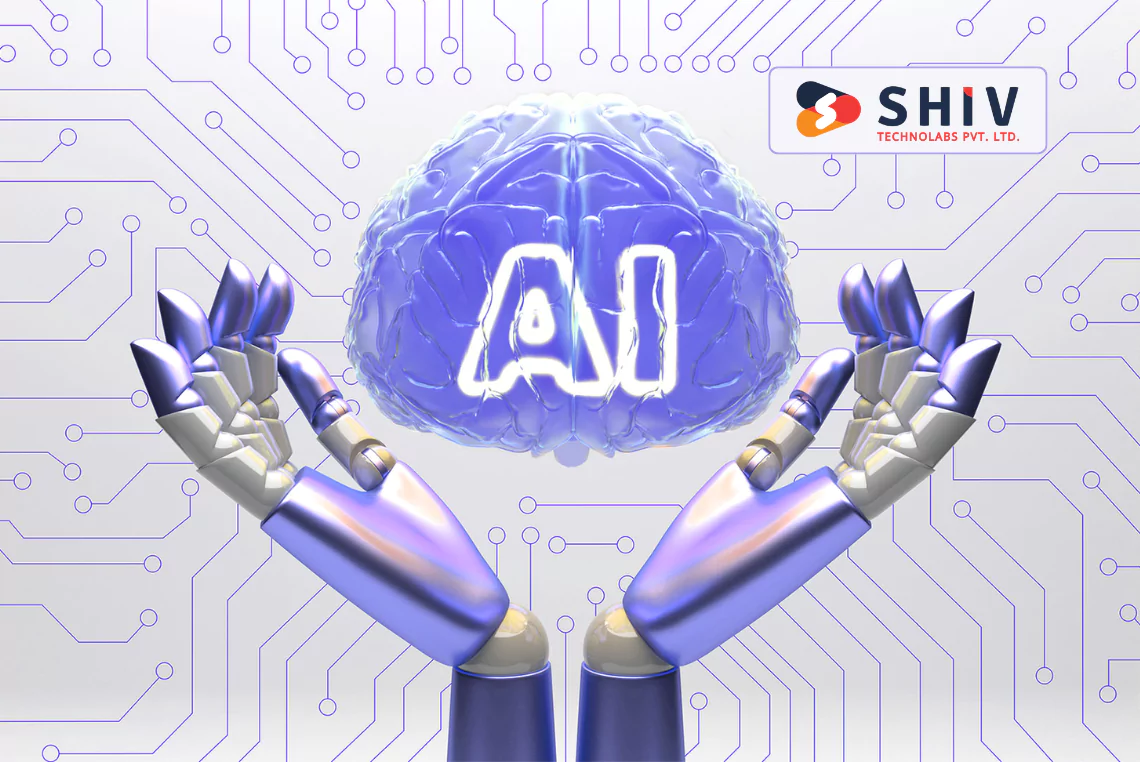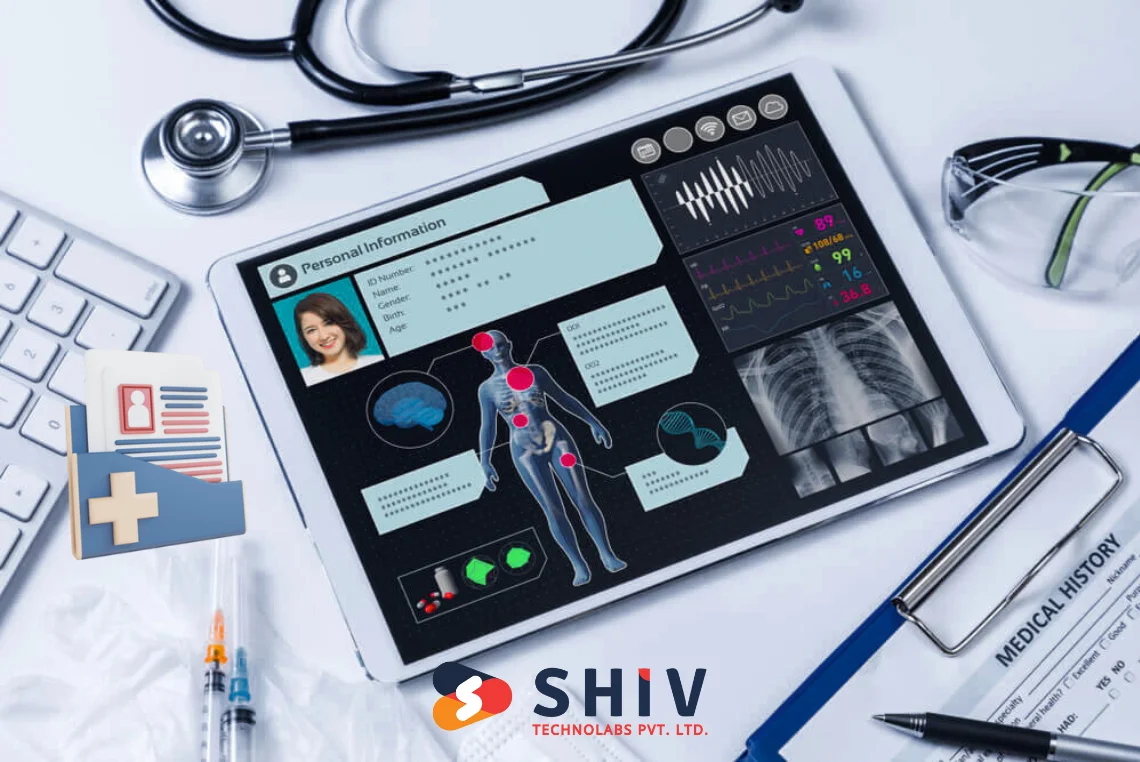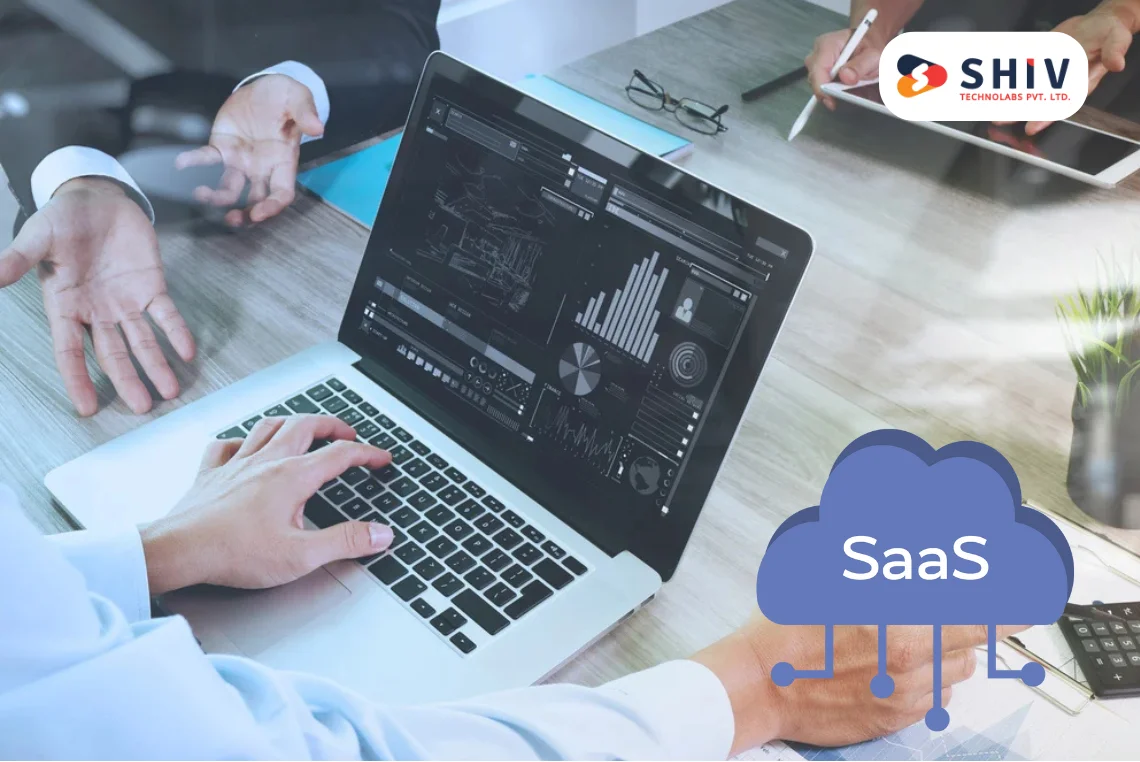Table of Contents
Artificial Intelligence as a Service, or AI SaaS, is changing how companies adopt technology. Instead of building complex AI tools from scratch, businesses can subscribe to ready-made platforms that run in the cloud. This makes advanced tools more accessible, even for startups and mid-sized firms.
From customer support chatbots to predictive analytics, AI SaaS solutions are becoming part of daily operations across industries. They save time, cut costs, and allow teams to focus on strategic goals rather than repetitive tasks.
Before investing, it’s important to understand what AI SaaS means, how it works, and where it can fit into your business. In this guide, we will cover the concept, its benefits, challenges, and the factors you should consider when choosing the right provider.
What Is AI SaaS?
AI SaaS combines Artificial Intelligence with the Software as a Service model. In simple words, it delivers AI-powered tools through cloud-based subscriptions.
This means businesses don’t need to build expensive infrastructure or hire large technical teams to use AI. Instead, they can access ready-made applications and pay only for what they use.
Breaking Down the Concept
- SaaS in general: Software hosted on the cloud, accessible by subscription, without installation or heavy maintenance.
- Adding AI: Machine learning and automation features are built into these platforms. They analyze data, predict outcomes, and help with decision-making.
- Real-life examples: AI-driven CRMs, eCommerce recommendation engines, fraud detection software, and AI chatbots.
Key Differences Between SaaS and AI SaaS
- Traditional SaaS provides software functions (like billing, HR, or project management).
- AI SaaS goes a step further by learning from data and improving over time.
- Instead of static features, AI SaaS adapts to business needs, offering smarter insights and automation.
Why Businesses Are Investing in AI SaaS?
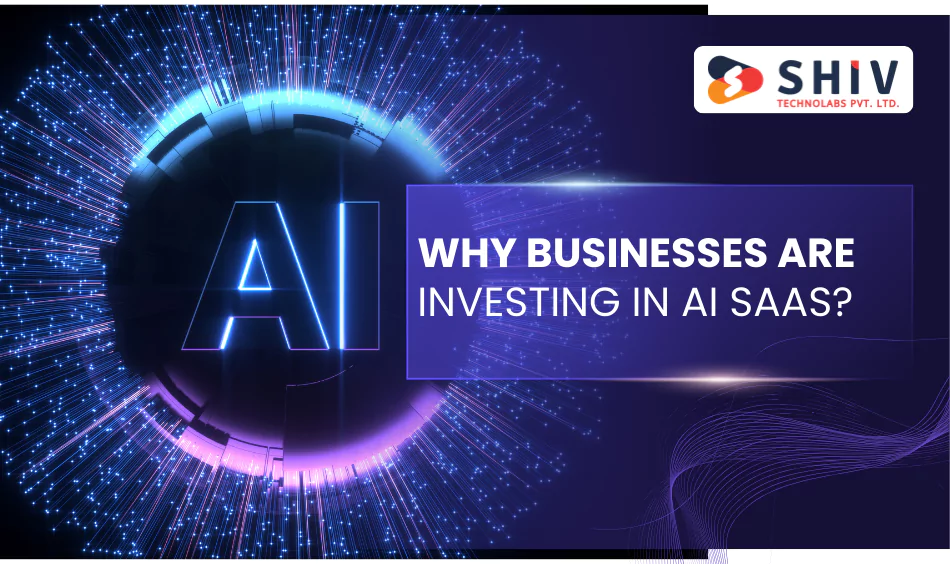
Companies across industries are turning to AI SaaS because it gives them access to advanced technology without heavy costs or long development cycles.
By subscribing to these platforms, even smaller firms can benefit from AI-powered tools once limited to large enterprises.
Some of the main reasons businesses are adopting AI SaaS include:
- Cost efficiency: No need for large infrastructure or in-house AI teams. Subscription pricing makes it affordable.
- Faster adoption: Instead of spending months building AI models, businesses can start using ready-made solutions instantly.
- Flexibility: Companies can scale up or down based on usage, making it suitable for both startups and enterprises.
- Focus on core work: With AI handling repetitive or data-heavy tasks, teams can concentrate on higher-value activities.
AI SaaS is not just a trend; it’s becoming a practical way for businesses to stay competitive.
Must Read: AI/ML Software vs SaaS AI Tools
Core Features of AI SaaS Solutions
AI SaaS platforms come with built-in capabilities that help businesses work smarter. These features go beyond standard software functions, offering intelligence that adapts to data and user behavior.
Data Processing and Insights
AI SaaS tools can process large volumes of data quickly. They recognize patterns, predict trends, and provide insights that help in making informed decisions.
Automation of Workflows
Routine tasks such as ticket assignment, invoice approvals, or customer replies can be automated. This reduces manual effort and allows teams to focus on complex tasks.
Personalization and Customization
AI SaaS adjusts to user preferences. For example, eCommerce platforms recommend products based on shopping behavior, while healthcare systems suggest treatment paths tailored to patient history.
These core features make AI SaaS suitable for companies that want both efficiency and adaptability without building AI solutions from the ground up.
Benefits of AI SaaS for Businesses
Adopting AI SaaS brings several advantages that go beyond traditional software. It offers smarter solutions while reducing the burden of managing infrastructure and technical complexity.
- Faster access to AI innovation: Companies can start using advanced tools immediately without lengthy development.
- Lower upfront investment: Subscription pricing removes the need for large one-time costs.
- Scalability: Businesses can adjust usage based on their growth stage or project demands.
- Regular updates: New features and improvements are rolled out automatically, keeping systems current.
- Improved decision-making: AI SaaS provides insights that help teams respond quickly to changes.
Comparison: Traditional SaaS vs. AI SaaS vs. On-Premise AI
When companies evaluate technology, cost, flexibility, and intelligence are often the top considerations. Each model, traditional SaaS, AI SaaS, and on-premise AI, offers a different balance of these factors.
| Aspect | Traditional SaaS | AI SaaS | On-Premise AI |
|---|---|---|---|
| Setup & Maintenance | Cloud-based, simple upkeep | Cloud-based with AI features | Complex, requires an in-house team |
| Cost | Subscription-based | Subscription-based, higher value | High upfront + ongoing costs |
| Intelligence | Limited automation | Learns and adapts from data | Custom but resource-intensive |
| Scalability | Easy to scale | Easy to scale with AI insights | Scaling needs heavy resources |
From this view, AI SaaS combines the flexibility of SaaS with the intelligence of AI, while avoiding the heavy expenses and effort that come with on-premise AI solutions.
It offers a practical path for businesses looking to adopt AI without major risks.
Challenges and Risks in AI SaaS Adoption
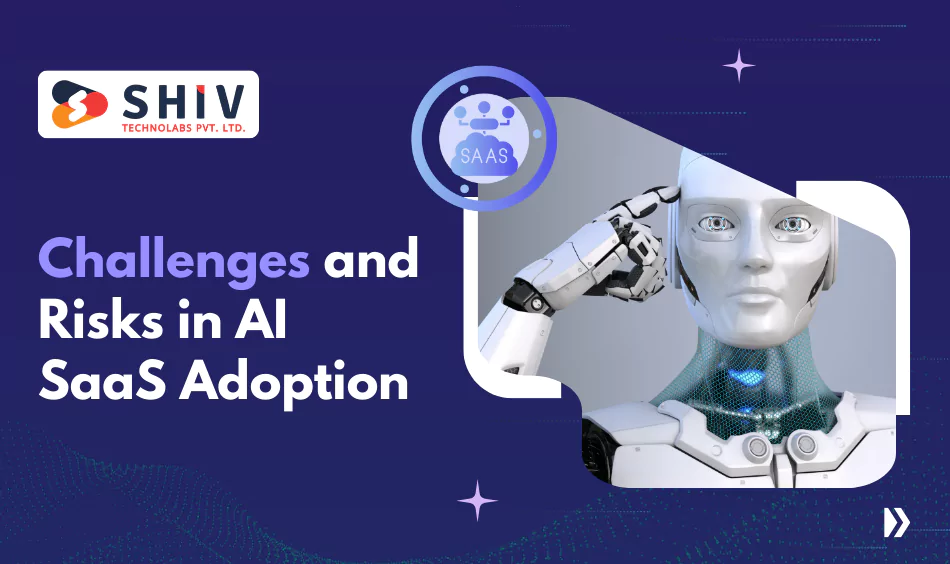
While AI SaaS offers clear benefits, businesses must also be aware of its challenges. Understanding these risks helps in making better decisions before investing.
Data Security and Privacy
AI SaaS platforms rely on cloud infrastructure, which means sensitive business and customer data is stored externally. Protecting this data requires strong encryption, compliance with regulations, and trust in the vendor’s security practices.
Vendor Lock-In Concerns
Once integrated deeply, switching providers can be difficult. Migrating data, retraining systems, and adjusting workflows often require significant time and cost.
Integration With Existing Systems
Not all AI SaaS platforms fit seamlessly with current tools. Businesses may face challenges in aligning AI features with their legacy systems, leading to delays in adoption.
Cost Management
Although subscription models reduce upfront investment, costs can grow as usage expands. Without careful planning, businesses may face unexpected expenses over time.
Being aware of these challenges ensures companies prepare the right strategy for adopting AI SaaS successfully.
How to Choose the Right AI SaaS Provider
Selecting the right provider is one of the most important steps in adopting AI SaaS. A reliable partner ensures smooth adoption, long-term value, and fewer risks. Here are key factors to consider:
- Industry experience: Look for providers who have delivered solutions in your sector. Domain knowledge helps them tailor AI models effectively.
- Customization levels: Some providers offer ready-made tools, while others allow modifications to suit your workflows. Choose based on your business needs.
- Support and training: A strong support system and hands-on training are essential to help teams use the platform confidently.
- Compliance and certifications: Ensure the provider follows data privacy regulations such as GDPR or HIPAA if applicable. Certifications highlight their commitment to security.
- Scalability: The platform should grow with your business, offering advanced features when needed without forcing major changes.
By evaluating providers across these areas, businesses can make an informed choice that aligns with both short-term goals and long-term strategies.
Future of AI SaaS
AI SaaS is moving from being an optional tool to a core part of business operations. As industries continue to adopt data-driven models, demand for AI SaaS platforms will only grow.
Several trends are shaping its future:
- Wider adoption across sectors: Healthcare, finance, retail, and logistics are already using AI SaaS. More industries are expected to follow.
- Smarter automation: Platforms will move beyond routine tasks and support complex decision-making through predictive and generative AI.
- Focus on compliance: With growing data regulations, providers will invest heavily in building secure and regulation-ready platforms.
- Integration with other technologies: AI SaaS will connect with IoT, blockchain, and advanced analytics to deliver more value.
For businesses, the future lies in selecting providers that not only deliver AI features but also evolve with changing needs.
Check out our premier AI development services!
Conclusion
AI SaaS is no longer just a technical concept; it’s a practical way for businesses to access the power of artificial intelligence without heavy investments. By offering subscription-based platforms, it allows companies of all sizes to integrate predictive insights, automation, and personalization into daily operations.
Before investing, decision-makers should weigh the benefits against the challenges, evaluate providers carefully, and select solutions that align with long-term business goals. The right choice can improve efficiency, reduce costs, and open new opportunities for growth.
At Shiv Technolabs, we build AI-driven SaaS solutions tailored to specific industry needs. From data processing and workflow automation to predictive analytics, our team delivers platforms that are reliable, scalable, and designed for real business impact.
If you are considering adopting AI SaaS, connect with us to discuss how we can build the right solution for your business.
FAQs
What does AI SaaS mean?
AI SaaS means Artificial Intelligence offered through subscription-based software, giving businesses access to smart tools without building or maintaining complex infrastructure.
What is AI SaaS chatbot?
An AI SaaS chatbot is a cloud-based conversational tool that understands user input, automates replies, and helps businesses provide faster and smarter customer interactions.
How to use AI for SaaS?
AI can be applied in SaaS for automating workflows, analyzing data, personalizing user experiences, predicting outcomes, and improving overall software efficiency and adaptability.
What is the difference between SaaS and AI agents?
SaaS provides software through subscriptions, while AI agents perform tasks independently using machine learning, adapting to user needs through real-time decision-making processes.
Is AI as a service the same as SaaS?
AI as a Service is a type of SaaS that specifically delivers artificial intelligence tools through the cloud using subscription-based access models.

